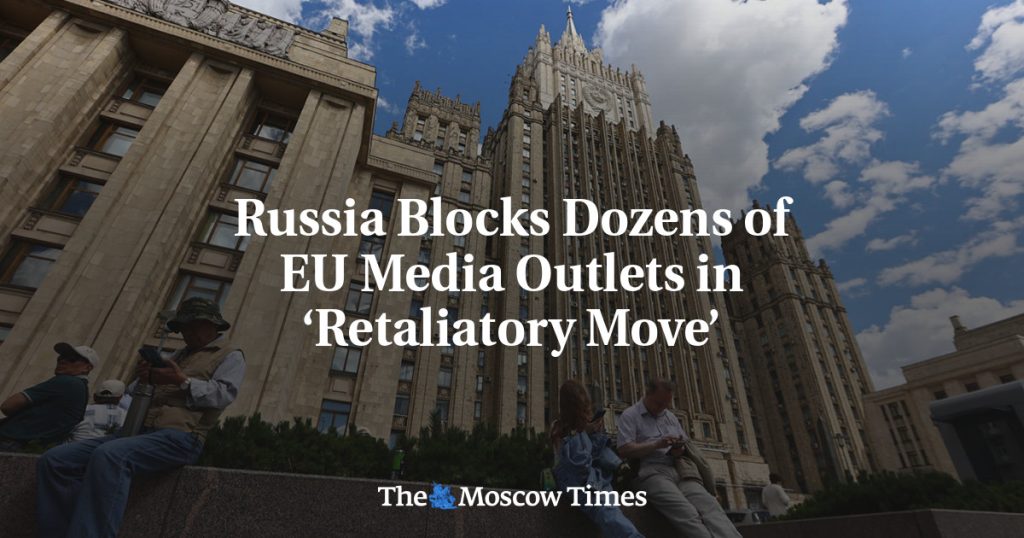Moscow has announced plans to block access to 81 European media outlets in response to the EU’s ban on four Kremlin-funded news organizations. The EU had decided to suspend the broadcasting activities of RIA Novosti news agency, Izvestia, Rossiiskaya Gazeta, and Voice of Europe, starting on June 25. In retaliation, Russia has chosen to restrict access to various media outlets from all but two EU member states.
The ban will impact news organizations such as AFP, Der Spiegel, and Politico, who have been accused by Russia of disseminating false information about its military operations in Ukraine. Russia views these outlets as spreading misinformation about its invasion of Ukraine, which began in February 2022. Since the start of the conflict, Russia has taken steps to restrict and censor media coverage, targeting both foreign and domestic outlets and labeling Western social media platforms as “extremist.”
The restrictions on media access are part of a broader crackdown on freedom of speech and press in Russia. The government has sought to control the narrative surrounding its actions in Ukraine, suppressing dissenting voices and independent reporting. By blocking access to European media outlets, Russia is further isolating itself from international scrutiny and criticism, creating an information vacuum within the country.
The move to block European media outlets highlights the deteriorating relationship between Russia and the EU, which have clashed over issues such as Ukraine, human rights, and media freedom. The tit-for-tat measures taken by both sides reflect the escalating tensions and mutual distrust that have characterized their interactions in recent years. The EU’s ban on Kremlin-funded news organizations was seen as a response to Russia’s actions in Ukraine, while Moscow’s decision to block European media outlets is viewed as a retaliatory move.
The restrictions on media access have drawn criticism from press freedom advocates and human rights organizations, who have condemned Russia’s crackdown on independent journalism. By blocking access to a wide range of European media outlets, Russia is limiting the flow of information and stifling public debate within the country. Critics argue that such measures undermine democratic principles and hinder transparency, contributing to a climate of censorship and repression in Russia.
Overall, Russia’s decision to block European media outlets represents a further escalation in its efforts to control the flow of information and silence dissenting voices. The move reflects a broader trend of media censorship and crackdowns on freedom of expression in Russia, which have intensified in the wake of the country’s invasion of Ukraine. The restrictions on media access serve to reinforce the government’s control over the narrative surrounding its military actions and limit public access to independent reporting on critical issues.


